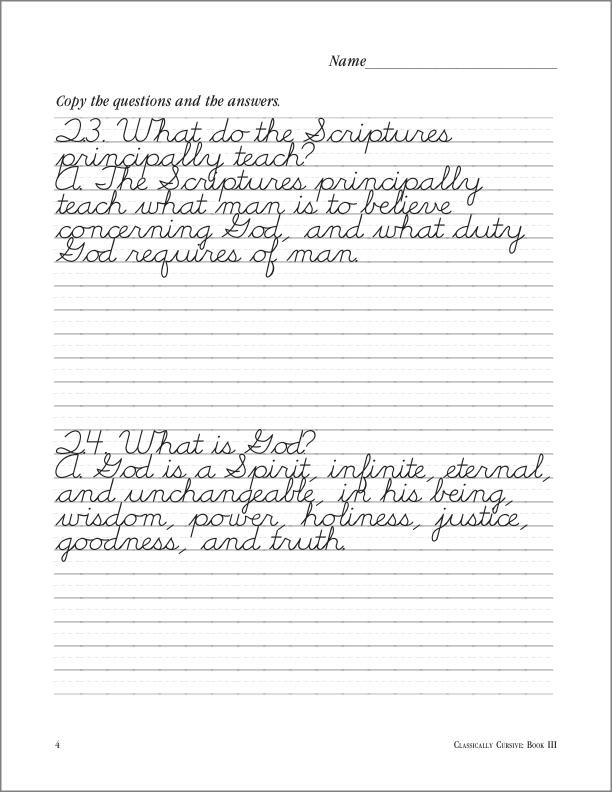Cursive is no longer a requirement in U.S. schools, so should we continue to teach cursive penmanship at Providence? Wouldn’t teaching kids to type be more practical?
As a response to the state of Illinois’ decision to pass a law requiring that students be taught cursive handwriting, overriding the governor’s veto, the BBC recently published an article entitled Should We Teach Kids Joined-up Handwriting?.
Our grammar school principal, Alice Kniss, offers her response:
Penmanship is an important aspect of the curriculum at Providence, beginning in pre-kindergarten. Neat, accurate formation of letters with a correct pencil grip is a lifelong skill that can prevent mental and physical fatigue. Research has shown that students who learn to form letters accurately and well in the early grades have better composition and literacy skills as they progress through school. Research has also shown that students who develop automaticity in accurate letter formation experience less frustration and are better able to express their thoughts and develop their ideas when completing writing assignments.
Penmanship is a large component of our researched-based reading program, which incorporates all five senses to build stronger brain synapses as students learn to read by seeing, saying, hearing, and doing (writing accurately and well) the 71 sounds of the English language, followed by accurately spelling and decoding words. Our experience has demonstrated that students trained in this way are better writers and readers than those trained without the attention to detail our program provides.
We believe penmanship is a wonderful tool for developing good learning habits such as observation, attention to detail, and diligence. Learning to form letters accurately and carefully gives weight to the importance of the written word and is an asset for teaching truth and beauty. We do not expect every student to have perfect penmanship, but we do encourage each one as an image-bearer to do his or her very best with the skill God has granted.
When students can think and write in syllables without prompting, we move from manuscript to cursive, usually early in third grade, to further brain development, fine motor skills, and comprehension of the alphabet. Students with learning differences, such as dyslexia, who learn the cursive alphabet identify more readily the differences not easily recognized in print letters and often become better writers of the cursive alphabet. Cursive is not the magic bullet for learning differences, but its use is widely recommended by therapists and special education professionals.
Penmanship is important at Providence because it can be a blessing to those who write and those who read. When assignments are completed accurately and to the best of one’s ability in form and content, these assingments honor those who read them. And they honor God as we strive to reflect Him who does all things well.
